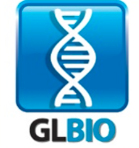GLBIO2019 Special Session on Bioinformatics Education
Organizing Committee
Joseph Ayoob, Associate Professor of Computational and Systems Biology, University of
Pittsburgh
https://www.csb.pitt.edu/Faculty/ayoob/
Dr. Ayoob is an Associate Professor in the Computational and Systems Biology at the University
of Pittsburgh School of Medicine. As an experimentalist in a computationally-focused graduate
program, he has directed and continuously evolved a wet-lab course for computational students
since 2010. In addition to his classroom efforts in, he has placed a priority on providing
mentoring and training opportunities to help prepare the next generation of scientists at the
graduate, undergraduate, and even high school level.
Kristin Jenkins, Executive Director, BioQUEST
bioquest.org
Dr. Jenkins is the Director of BioQUEST, and is a PI on the NSF funded QUBES (Quantitative
Undergraduate Biology Education and Synthesis) project. She has used her PhD in
Molecular and Cellular Biology in teaching and curriculum development at the high school,
community college, primarily undergraduate four year college and R1s. She has extensive
experience in professional development for faculty and future faculty, and has been engaged in
equity and diversity programming since 2000. She is co-chair of the Society for the Study of
Evolution Education Committee, and was made a AAAS Fellow in the Education Section in 2018.
William Morgan, Theron L. Peterson and Dorothy R. Peterson Professor of Biology, The College
of Wooster
https://www.wooster.edu/bios/wmorgan/
Dr. Bill Morgan is a professor in the Biology Department and the Biochemistry & Molecular
Biology program at the College of Wooster. He currently teaches courses in introductory
biology, genetics and genomics, and bioinformatics. Using genomic and bioinformatics
approaches, Dr. Morgan and his undergraduate research students investigate how plant
pathogens infect host plants at the molecular level using yeast as a model system. As a
member of the NIBLSE leadership team, Dr. Morgan is helping to establish a network of
educators seeking to integrate bioinformatics into life science education.
Russell Schwartz, Professor of Biological Sciences and Computational Biology, Carnegie
Mellon University
https://www.cmu.edu/bio/people/faculty/schwartz.html
Schwartz has been on the faculty of Carnegie Mellon University since 2002, where he works on
a variety of problems in computational genomics and computational biophysics. In the
education domain, he has previously co-directed MS and PhD programs in computational
biology, co-directs the Pittsburgh Medical Scientist Training Program (MSTP), and helped lead
curriculum development efforts at BS, MS, and PhD levels. He has also developed several
classes in the area aimed at both graduate-level computational biologists and undergraduate
biologists. He also serves as Vice Chair of Carnegie Mellon's University Education Council
(UEC) and is a member of the ISCB Education Committee and co-chair of the ISCB Education
Community of Special Interest (COSI). He has been particularly active in recent years in how to
teach bioinformatics skills to non-computational biologists.
Michael Sierk, Assistant Professor of Bioinformatics, Saint Vincent College
http://www.stvincent.edu/about/directory-staff/michael-sierk
Sierk has directed the Bioinformatics Program at Saint Vincent College for 13 years and has
been active in the GLBIO education community for several years. He is a member of the
steering committee of the NSF-funded Network for the Integration of Bioinformatics into Life
Science Education (NIBLSE) and is a member of the NIBLSE Resources Review Committee,
where he has helped lead the development and deployment of teaching and learning resources
for the use of the bioinformatics education community.
Lonnie Welch, Professor of Electrical Engineering and Computer Science, Ohio University
https://www.ohio.edu/engineering/about/people/profiles.cfm?profile=welch
Dr. Welch received his Ph.D. in Computer and Information Science from the Ohio State
University. Professor Welch directs the Bioinformatics Laboratory at Ohio University, where he
leads a team of researchers who develop computational methods for discovering genomic,
transcriptomic, epigenomic, and proteomic markers associated with disease phenotypes. Welch
is the founding director of Ohio University’s Bioinformatics Certificate Programs and was the PI
of the Ohio Board of Regents Bioinformatics Scholarship Program. Dr. Welch served two terms
on the Board of Directors of the International Society for Computational Biology; additionally, he
served as Co-Chair of ISCB's Education Committee, where he started the Curriculum and
Competencies Task Force. Currently, he Co-Chairs ISCB’s Affiliates Committee, is Steering
Committee Co-Chair of ISCB’s Community of Special Interest on Regulatory and Systems
Genomics, is the Steering Committee Chair of ISCB’s Great Lakes Bioinformatics Conference,
and is a Co-Chair of the ISCB Wikipedia Competition.
